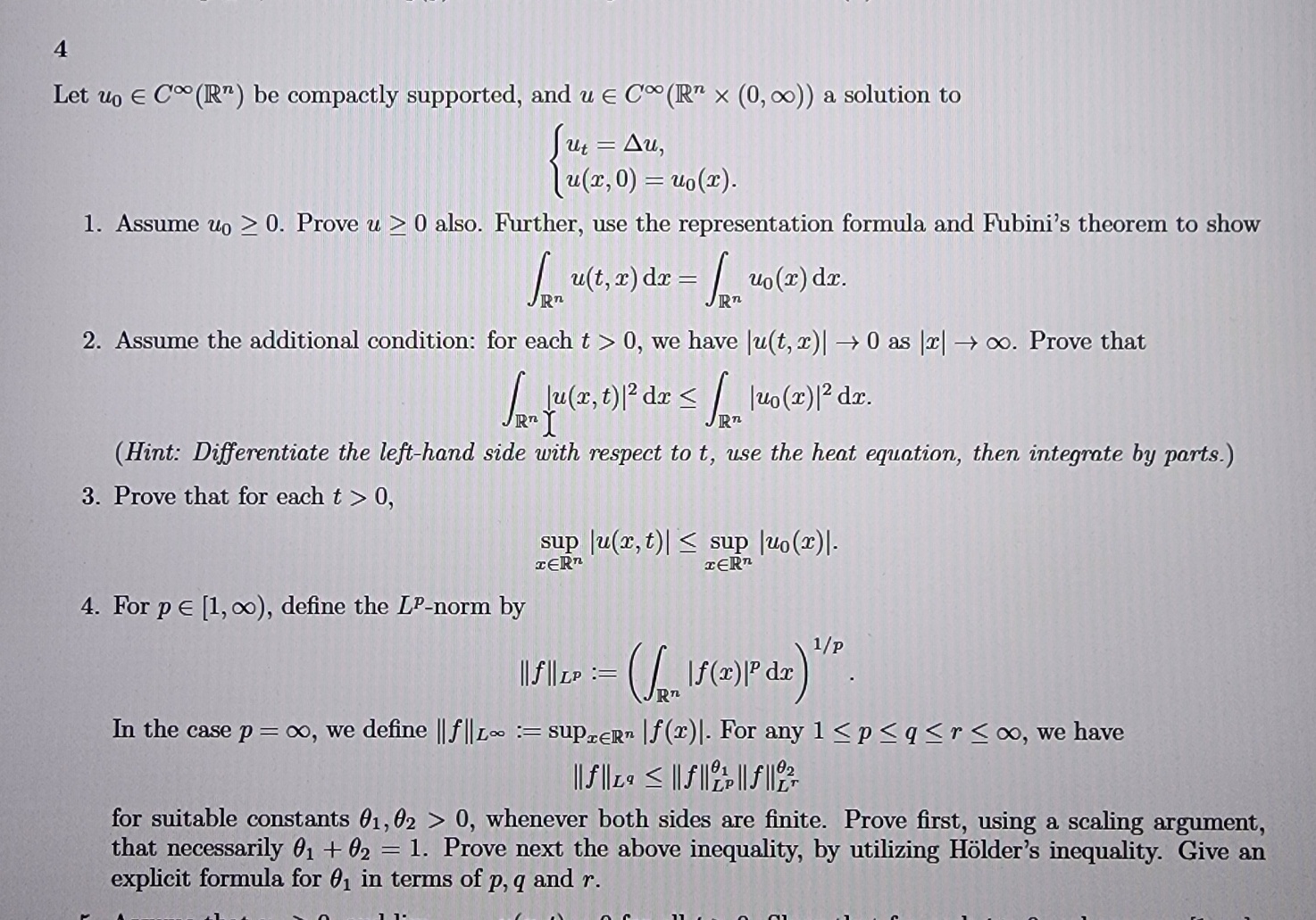Home /
Expert Answers /
Advanced Math /
let-u-0-inc-infty-r-n-be-compactly-supported-and-uinc-infty-r-n-times-0-infty-a-pa194
(Solved): Let u_(0)inC^(\infty )(R^(n)) be compactly supported, and uinC^(\infty )(R^(n)\times (0,\infty )) a ...
Let u_(0)inC^(\infty )(R^(n)) be compactly supported, and uinC^(\infty )(R^(n)\times (0,\infty )) a solution to
u_(t)=\Delta u
u(x,0)=u_(0)(x)
Assume u_(0)>=0. Prove u>=0 also. Further, use the representation formula and Fubini's theorem to show
\int_(R^(n)) u(t,x)dx=\int_(R^(n)) u_(0)(x)dx.
Assume the additional condition: for each t>0, we have |u(t,x)|->0 as |x|->\infty . Prove that
\int_(R^(n)) |u(x,t)|^(2)dx<=\int_(R^(n)) |u_(0)(x)|^(2)dx.t, use the heat equation, then integrate by parts.t>0,
sup_(xinR^(n))|u(x,t)|<=sup_(xinR^(n))|u_(0)(x)|.
For pin[1,\infty ), define the L^(p)-norm by
||f||_(L^(p)):=(\int_(R^(n)) |f(x)|^(p)(d)x)^((1)/(p))
In the case p=\infty , we define ||f||_(L^(\infty )):=sup_(xinR^(n))|f(x)|. For any 1<=p<=q<=r<=\infty , we have
||f||_(L^(q))<=||f||_(L^(p))^(\theta _(1))||f||_(L^(r))^(\theta _(2))
for suitable constants \theta _(1),\theta _(2)>0, whenever both sides are finite. Prove first, using a scaling argument,
that necessarily \theta _(1)+\theta _(2)=1. Prove next the above inequality, by utilizing Hölder's inequality. Give an
explicit formula for \theta _(1) in terms of p,q and r.